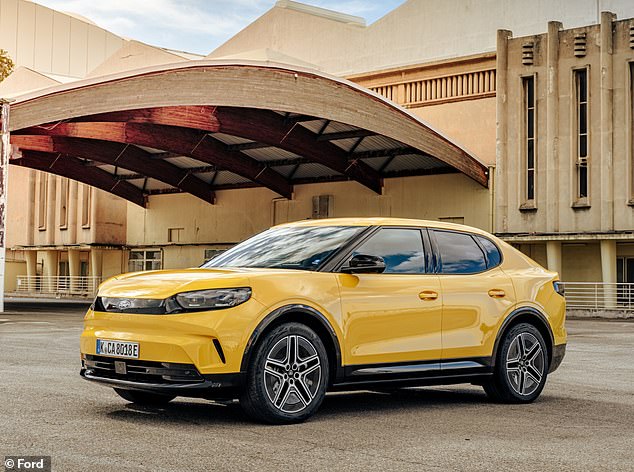- Ford says it is ‘producing more than it sells’ amid low demand for electric vehicles in Europe
Ford’s bold plans for electric vehicles are not off to the expected start, with the American brand already being forced to reduce production of its latest two electric vehicle models at its Cologne factory due to low demand.
Both the new Explorer SUV and the controversial Capri are suffering from lower-than-expected sales.
Weak electric vehicle market conditions are also to blame, Ford confirmed.
The new Ford Capri has been one of the most controversial launches in modern motoring, but how does it drive? We checked it out at launch to find out.
The new Explorer has only been rolling off the production line since June, and assembly of the newly launched Capri began in September.
However, a Ford spokesperson told German newspaper Kölner Stadt-Anzeiger: “We produce more than we can sell,” as it becomes another automaker caught out by slowing global sales of electric vehicles.
It comes just weeks after Volkswagen said it could be forced to lay off thousands of employees, cut salaries, cut bonus programs and even close three of its car factories in Germany as a result of a recent drop in sales, especially of electric vehicles.
Ford’s new electric Capri has been called the most controversial new car of 2024.
Both it and the Explorer share platforms with VW electric cars, but the blue oval brand’s latest model has sparked a furious response from Capri devotees who accused Ford of “blasphemy” and being “disrespectful to the original Capri.” ” by using the name on an electric SUV that reveals little to no resemblance to its namesake.
Despite a huge – and expensive – launch campaign fronted by former Manchester United footballer Eric Cantona – and a media blitz using his now infamous “the legend is back” slogan – Ford would have expected better sales figures.
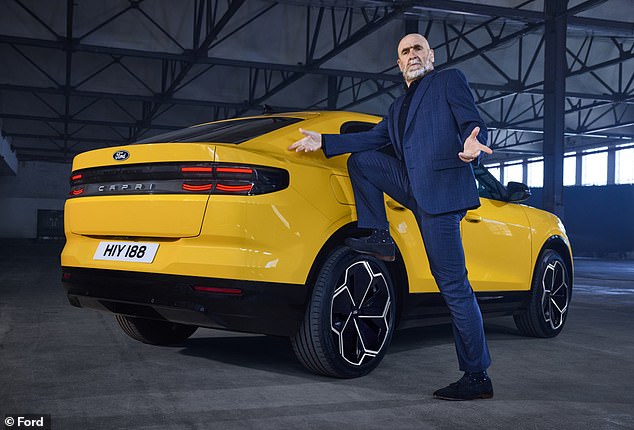
Eric Cantona photographed with the 2024 Ford Capri after being featured in a well-orchestrated viral social media campaign hinting at the return of one of the biggest automotive names of the 1970s and 1980s. ‘The legend is back’ is the slogan of Capri’s campaign
The weak demand for electric vehicles in Europe and, in particular, in Germany is partly to blame for the decision to reduce production. A spokesperson confirmed that “significantly lower than expected demand for electric vehicles, especially in Germany, requires a temporary adjustment of production volumes.”
To address the situation, Ford will implement short-time work starting next week, and work is scheduled to stop for three weeks in total.
Workers at the Cologne plant on the Explorer and Capri assembly lines now work on a “one week on, one week off” rotation, and this will continue until Christmas.
Fiat has been forced to implement a similar pause in the production of its electric 500e in Turin, also due to lack of demand.
Bosses at the Italian brand have blamed the lack of sales on older drivers who do not want battery-powered cars.
Ford told This is Money: ‘We continually monitor developments in the market. The significantly lower than expected demand for electric vehicles, especially in the German market, requires temporary adjustments to production at the Cologne Electric Vehicle Center.
“We can confirm that Ford plans to apply for a short-term collaboration with the Bundesagentur für Arbeit due to the rapidly deteriorating market conditions for electric vehicles.”
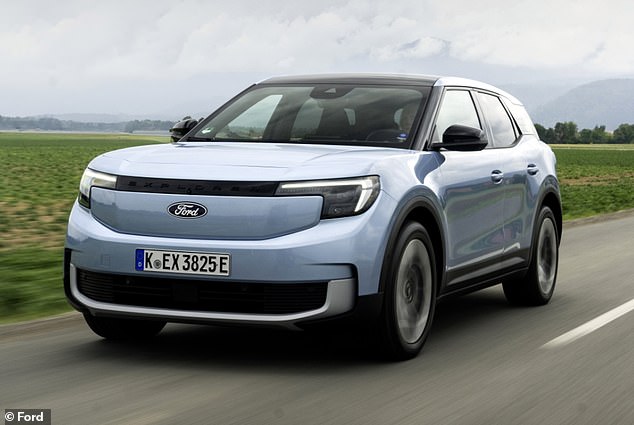
We tested the new Ford Explorer in Slovenia to see if it’s the car that will set the bar in the crowded electric SUV market.
The Cologne plant has an annual production capacity of 250,000 units – after a $2 billion investment last year alone – but the latest figures from the European Automobile Manufacturers Association put Ford’s total new sales in the EU 15.3 percent less than last year.
Ford has sold 236,081 cars in Europe between January and September of this year compared to 278,581 in the same period last year.
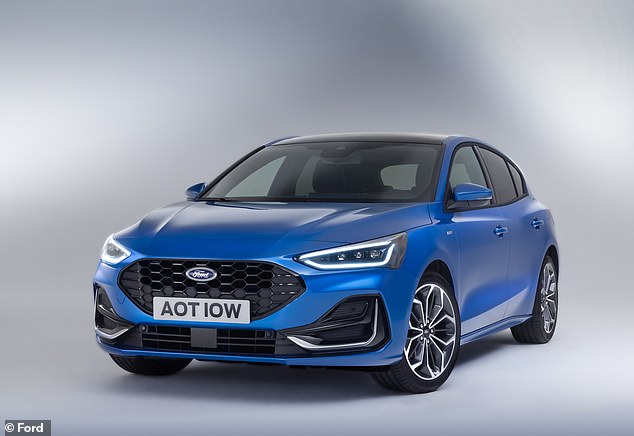
Out of focus: Ford’s family hatchback, on sale in the UK for 26 years, will not receive a long suspension of execution
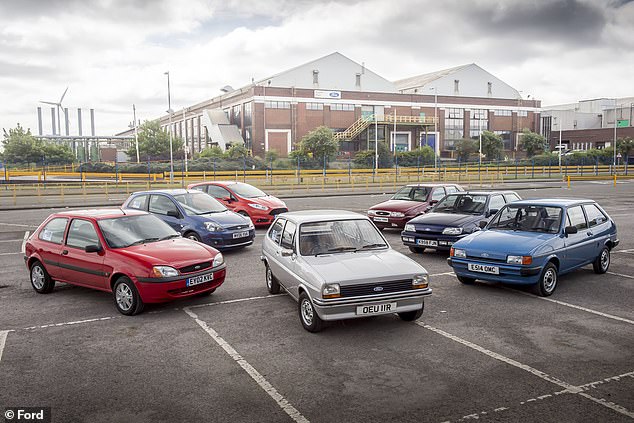
On 7 July 2023, Ford produced its final Fiesta model, marking the end of the road for Britain’s most-bought car of all time, which had been in production for 47 continuous years.
Ford of Europe has undergone a major shift in strategy in recent years as the brand focuses on electric vehicles, phasing out some of its most popular combustion models.
Production of the Fiesta ended in July, when Britain’s most popular car of all time was scrapped so the Cologne factory could be converted into an electric vehicle plant.
That announcement was followed by the launch of the Focus hatchback in late 2025.
The Mondeo, Galaxy and S-Max have also been axed in the last 24 months.
Ford committed to an all-electric lineup by 2030, but reversed its decision this summer.
Marin Gjaja told Autocar that 2030 was “too ambitious” due to “uncertainty” around demand and legislation for electric vehicles, and confirmed instead that the brand would continue to offer new hybrid cars in Europe beyond that date. .

